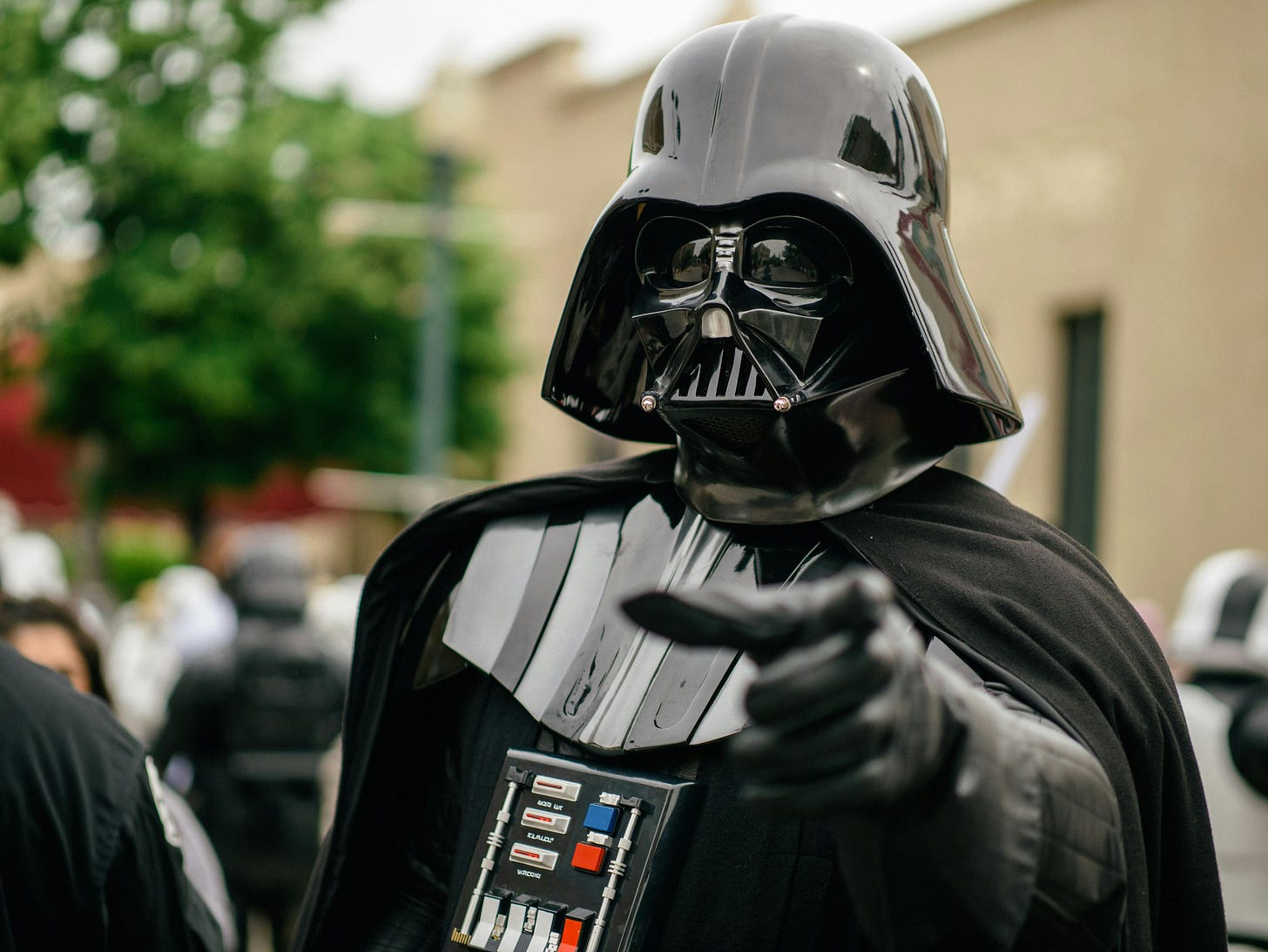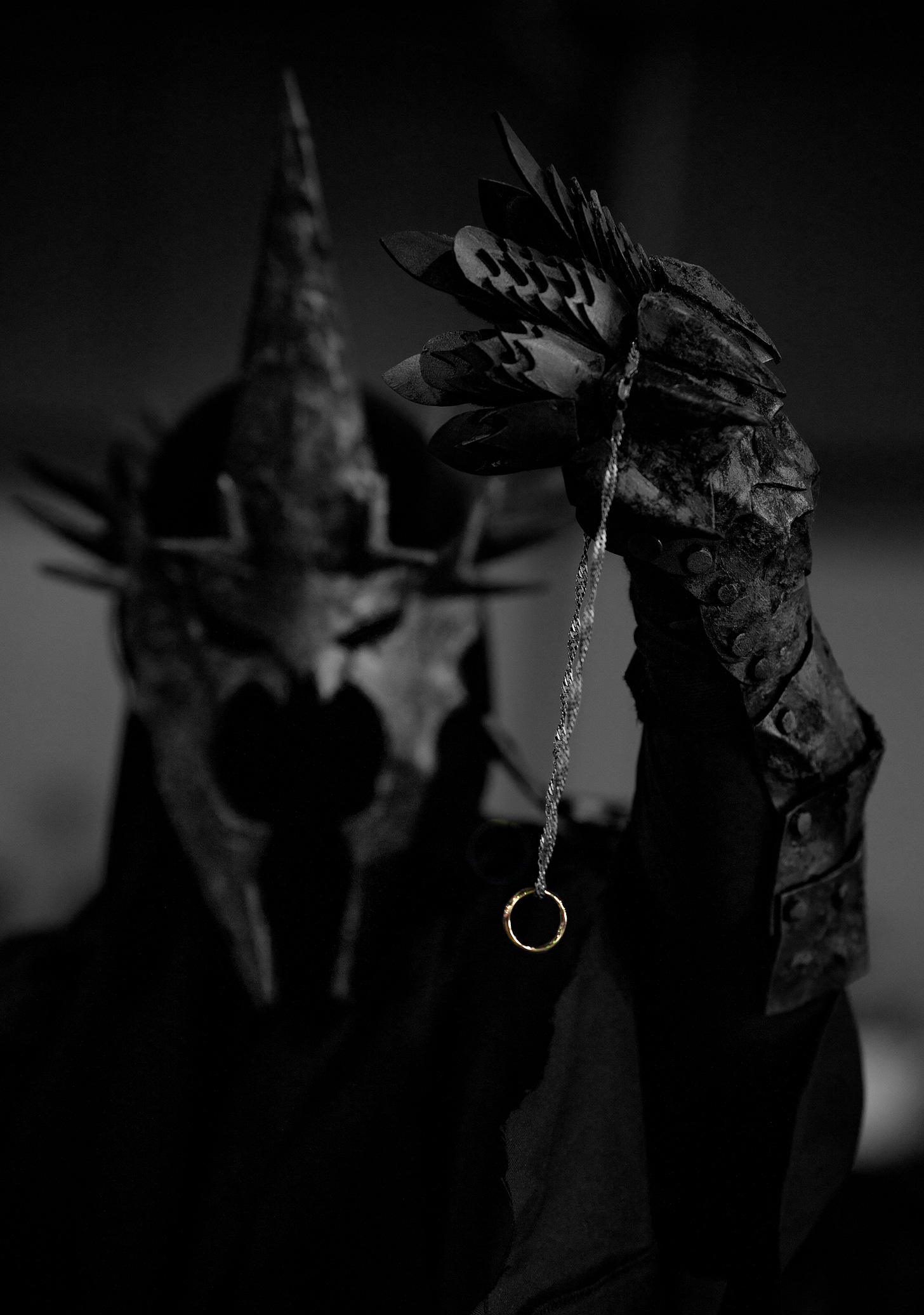What makes a good villain?
Love 'em or hate 'em, they can either make or break a story.
Think of your favorite villain from a movie, novel, game, or TV show. You’ll likely have a few options that come to mind. What did you like about those villains?
I posted a note here on Substack asking folks about their favorite villains. Some responses included The Joker from Batman, Minister Frollo from Hunchback of Notre Dame (remember that guy?), Magneto from X-Men, and of course Darth Vader.
The reality is, a villain can either make or break a story.
So let’s break down what makes a good villain so you can get to writing a really memorable one for your story.
Great villains have compelling motives
What do you call a villain whose only motivation seems to be “Bwa ha ha, I’m going to take over the world”? Silly, that’s what. That’s best saved for villains like Dr. Evil, but if you want your readers to really buy into your villain (and thus want to see them defeated), they need a really compelling motive.
What makes your villain tick? Why are they evil? Are they on a revenge kick? Do they think money or power will make them happy? Do they want the world to take them seriously instead of slighting them?
Whatever it is, it’s got to be compelling. Readers need to understand (if only partially) why your villain is pursuing their goal, beyond just world domination.
Great villains have arcs too
Just like your protagonist has a character arc they go through, your villain should have one too. This could be either a redemption arc (they get better throughout the story and become a good guy in the end), a degenerative arc (they get worse and are finally defeated), or something else.
They should have character development just like any other major character in your story, otherwise you risk turning them into a flat, two-dimensional character. And that’s a recipe for a boring villain.
Great villains are a reflection on power
Ultimately, villains are a way for the writer (and the reader) to reflect on the nature of power and its relationship to humanity. Villains can help us see what happens when people let power corrupt them, driving them to use power as a self-serving force. In that sense, villains become a living symbol, or parable.
This can also work really well when the villain is the direct opposite of your protagonist. Then we get to explore the nature of power from two different sides (Star Wars being a classic example).
Villains can also be mirror images of your protagonist. They can function as the embodiment of the protagonist’s flaws and failures, but also share some of your protagonist’s traits or goals. In this way, the protagonist can see themselves in the villain, realizing that they’re only a couple of wrong steps away from becoming one themselves.
Great villains oppose the protagonist
This is the more obvious one, but it’s a necessary reminder. The villain needs to directly oppose the protagonist, sparking the main conflict of your story. Without that opposition from the villain, there’s not much conflict.
That being said, your villain doesn’t actually have to be a person. It could be a force like a natural disaster, a setting, or something else. But it has to oppose the protagonist and be involved in the central conflict.
Now, this is purely subjective, but in most stories, the villain is defeated. At least, in the stories I like, they do. Who would want to read a story where the villain wins in the end? I think God has wired us with this longing to see good in the world, and particularly, to see good triumph over evil. Good storytellers know how to tap into that desire.
Sure, the villain can seem like they’re on the verge of winning, but ultimately we all want to see good win. Villains provide a way for us to explore the nature of power and human nature in a way that the protagonist couldn’t if they were by themselves.
Who’s your favorite villain? Let me know in the comments.





Vadar…best villain EVER 🤓 Disarms the protagonists with the force and says “please, join us…” 😲🫣😂🤟
The opposition between hero and villain should ideally be spiritual as well as physical. As you said, they could be mirror images. Or else the villain may try to corrupt the hero or at least convince the hero that there is some justification for the villain’s path. And if they have reasons to care about each other despite their differences, all the better. The more the story touches on what's inside their hearts, the more chance it has of touching ours too!